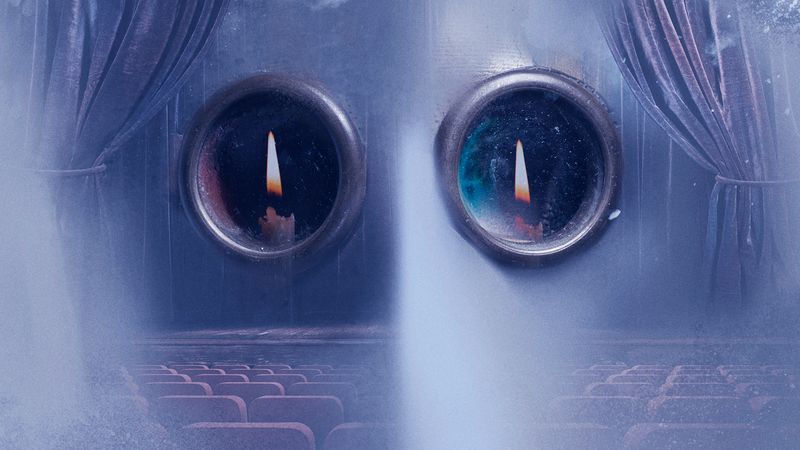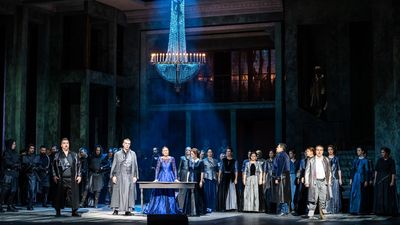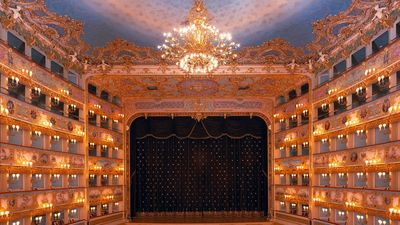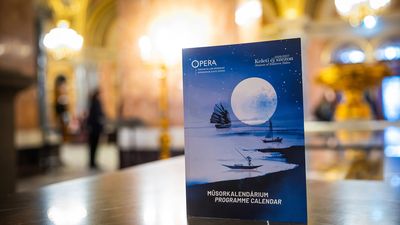
The Muse of France Season at the Hungarian State Opera cannot pass without touching upon the life and work of one of the greatest French playwrights, Molière. His final comedy has been turned into an opera by Hungarian composer János Vajda, who has also incorporated elements from a play about Molière by Bulgakov. The Imaginary Invalid or The Cabal of Hypocrites can be seen for the first time as part of CAFe Budapest Contemporary Arts Festival on 30 October 2020.
Following the success of Mario and the Magician (1988), Leonce and Lena (1999) and Mrs Karnyó (2007), The Imaginary Invalid or The Cabal of Hypocrites is the fourth work by Erkel Award and Kossuth Prize recipient Hungarian composer János Vajda (b. 1949) to be staged at the Opera. His first intention was to compose an opera from Bulgakov's play, but with librettist Szabolcs Várady and dramaturg Diána Eszter Mátrai, they decided to combine the two works. “This is my first opera to be based around an idea of my own,” says the composer. “My original thinking was to compose music for Bulgakov’s piece, which is about Molière’s life, with Le malade imaginaire unfolding in the background. Then I started to feel that the situation instead should be reversed, with Molière’s comedy taking the foreground and the French playwright’s life and struggles receding into the background. What was the reason for this mirror image? I felt that I had discovered the appropriate music for Molière’s work, meaning that his life story had to be the subordinate thread throughout the entire work.” The main focus thus shifted to the comedy by Molière. Elements taken from Bulgakov's piece are dialogues between Louis XIV and the author, which now serve as a prelude, an interlude and a postlude. The composer was also inspired by the 1978 film Molière by French director Ariane Mnouchkine.
In his comedy that is very popular even in our times, "Molière mocks the most senseless of passions that resides in the human mind: the fear of death and miserable hypochondria", states Bulgakov. According to János Vajda, the thread taken from the Bulgakov piece, the personal relationship between King Louis and Molière, which is the relationship of the artist to power, is an eternal topic: it has always been relevant and it always will be. This eternal conflict also gives the composer the chance to include darker tones in his opera. As most of his pieces, his new opus also features the new tonality characteristic to the millennium, and he follows different post and neo- styles and there is also an element of baroque in it.
The new opera is to premiere at the Miklós Bánffy Stage of the Eiffel Art Studios. It is almost a chamber piece, with eight characters and a smaller, Mozartian orchestra. The production directed by Máté Szabó, with sets by Renátó Cseh, costumes by Anni Füzér, and choreography by Johanna Bodor promises a real treat. The double title role of Argan and Molière are originated by András Hábetler, his partners on stage are Bernadett Wiedemann, Lilla Horti, György Hanczár, Éva Bátori, István Rácz and Gergely Biri. At the director's request, the prose role of Loius XIV is played by Szilveszter Ókovács. The Hungarian State Opera Orchestra is conducted by János Kovács. The world premiere of the piece takes place at the CAFe Budapest Contemporary Arts Festival on 30 October 2020, with one more performance on this season's repertoire of the Opera, on 31 October 2020.


